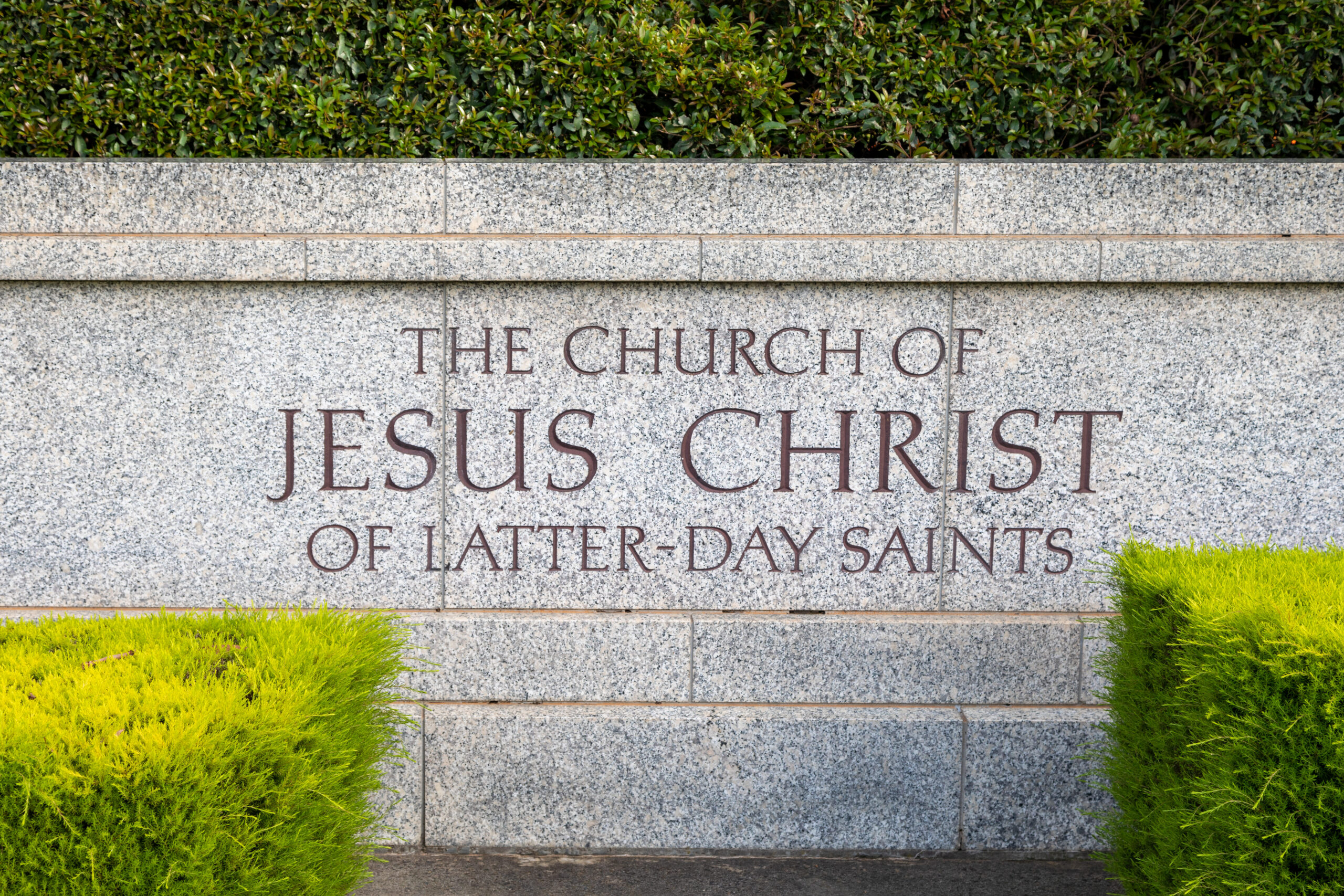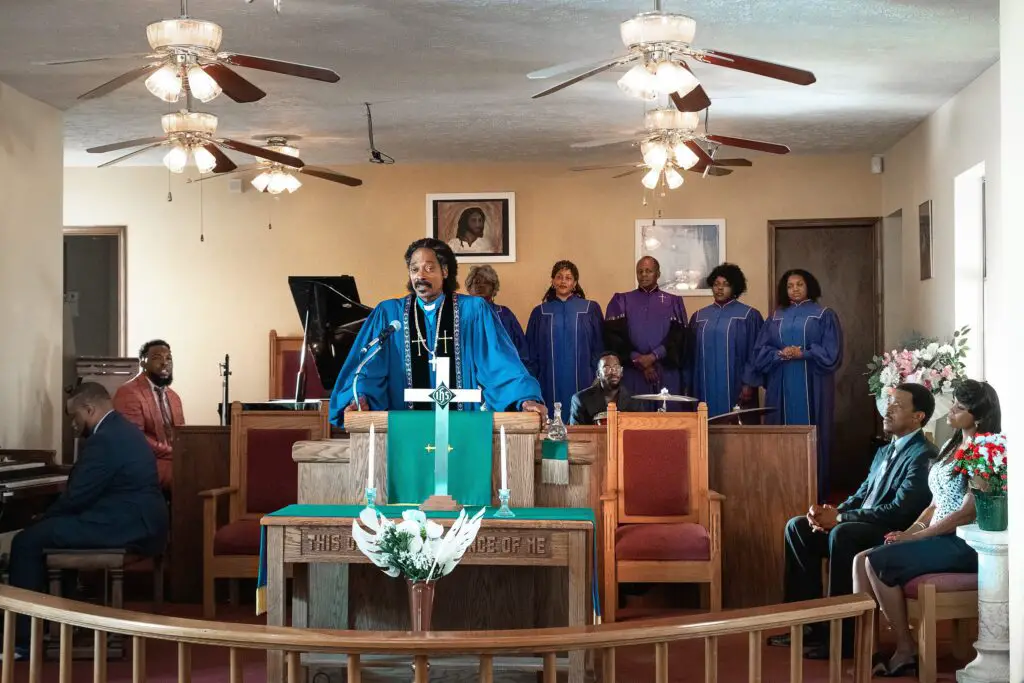1. Baptism for the Dead

One of the most well-known Mormon practices that may seem strange at first glance is baptism for the dead. Mormons believe that baptism is essential for salvation, so they perform baptisms on behalf of deceased ancestors who may not have had the chance to be baptized while alive. This practice is based on their belief that everyone deserves the opportunity to accept or reject the gospel, even after death. Mormons use a proxy to undergo the baptism on behalf of the deceased, which can be done in temples shares Wikipedia.
At first, it might feel a bit eerie to think of someone being baptized for someone who has passed away, but it’s seen as an act of love and devotion. Mormons believe that it helps their ancestors on the path to salvation, offering them a chance to accept the teachings of the church. It’s important to note that these baptisms are only performed for those who have passed away; no one is forced to accept them in the afterlife. For Mormons, it’s an essential practice of service, showing respect for their lineage and ensuring everyone has a fair shot at spiritual salvation adds VICE.
2. Word of Wisdom

The Word of Wisdom is a health guideline that might seem restrictive to some, especially when it comes to prohibiting things like alcohol, tobacco, coffee, and tea. Mormons believe that this divine law, which was given in the 1800s, is meant to keep the body healthy and pure, as they view the body as a sacred temple. At first glance, it might seem overbearing, but Mormons embrace it as part of their faith and commitment to living a clean and wholesome life says KUTV.
While many people enjoy their daily cup of coffee or glass of wine, for Mormons, these restrictions are a way of honoring their bodies. It’s also seen as an opportunity to avoid substances that could lead to addiction or harm. Mormons are encouraged to eat a balanced diet and focus on whole foods, with a strong emphasis on eating in moderation. This lifestyle helps foster spiritual well-being, as Mormons believe the mind and body are interconnected, and maintaining physical health aids in their spiritual growth shares Salt Lake Tribune.
3. The Law of Tithing

Paying tithing, which means donating 10% of one’s income to the church, is a deeply embedded practice for Mormons. While it may sound surprising that a religion asks for such a specific amount, Mormons view it as a commandment and a way to show faith and obedience to God. Tithing isn’t just a financial obligation but a spiritual act, with the belief that God will bless them in return for their sacrifices.
Tithing is used to support the church, including building temples, supporting missionaries, and funding programs that benefit members. While some people might balk at the idea of giving away 10% of their income, Mormons see it as an act of trust. They believe that when they give generously, they are strengthening their relationship with God, and that the blessings they receive—whether material, emotional, or spiritual—far outweigh the cost. This practice is considered a way to demonstrate their faith in action.
4. The Eternal Nature of Marriage

Mormon marriages are unique in that they believe marriages can last forever, not just until death. This concept is central to their belief in eternal families and is sealed in a sacred temple ceremony. It can be difficult to grasp at first, especially for those outside the faith, who may wonder how a marriage could possibly transcend death. Mormons, however, believe that they are promised eternal life with their families, where relationships will continue after this life.
This eternal perspective on marriage makes the bond between husband and wife even more meaningful. Mormons are taught that they should work toward perfecting their relationships, not just for this life but for all eternity. In the eyes of the church, marriage isn’t a temporary institution, and it’s deeply rooted in the promise of everlasting unity. This belief shapes how Mormons view their relationships, making them something to be nurtured and cherished at all times.
5. Modesty in Dress

Mormons are taught to dress modestly, which often includes avoiding clothing that is too revealing or flashy. The church’s teachings stress the importance of modesty as a way to respect the body and avoid drawing unnecessary attention. While this might seem like a restrictive or old-fashioned approach, Mormons see it as a way to stay focused on their spiritual lives rather than material appearances.
For many Mormons, the focus is on dressing in a way that reflects respect for themselves and for others. Modesty isn’t about hiding one’s personality but about letting their inner qualities shine through. It’s a practice that reflects their desire to keep their minds and hearts pure, free from distractions or influences that could hinder their relationship with God. It’s not about judging others but about living in a way that is consistent with their faith.
6. The Practice of Wearing Temple Garments

Wearing temple garments is one of the most personal practices within the Mormon faith. These special undergarments are worn by members who have received their temple endowment, which is a sacred ordinance. At first, it may seem odd to outsiders, but for Mormons, these garments represent a physical reminder of their commitment to God and the covenants they’ve made.
The garments serve as a symbol of protection, purity, and spiritual commitment. It’s believed that wearing them provides a constant reminder of the values and teachings that Mormons hold dear. While some may not fully understand the significance, for Mormons, temple garments are not only a part of their spiritual identity but also a daily reminder to live in harmony with their beliefs. It’s a deeply personal practice that connects them to their faith on a daily basis.
7. Missionary Work

Mormon missionary work is a practice that involves young adults volunteering for a period—usually two years for men and 18 months for women—to spread the teachings of the church. While it may seem like an overwhelming commitment to many, Mormons see it as a vital part of their spiritual journey. Missionaries go to various parts of the world, sometimes far from home, to share their beliefs and serve others.
For Mormons, this isn’t just about spreading doctrine but also about helping others by providing service. The mission experience is also about personal growth, discipline, and learning to trust in God’s plan. Though the experience can be challenging, missionaries return home with a deeper sense of purpose and faith. It’s a rite of passage for many young Mormons, and one that shapes their identity and commitment to their faith for the rest of their lives.
8. The Practice of Fasting

Fasting is another Mormon practice that may seem a little unusual but is seen as a form of spiritual discipline. Mormons fast once a month on the first Sunday, abstaining from both food and drink for 24 hours. This isn’t done just for health benefits but as a way to focus on prayer, reflection, and personal growth. It’s a time for spiritual renewal and to ask for divine help.
Fasting is also seen as a way to develop empathy for those who suffer and to foster gratitude. The money that would have been spent on food is typically donated to those in need through the church’s fast offerings. While fasting might seem like a challenge, for Mormons, it’s an opportunity to connect with God on a deeper level and to recognize the blessings in their lives. It’s a practice that promotes self-control and strengthens faith.
9. The Sacredness of the Family

In Mormonism, the family is seen as the foundation of society and the church. This belief in the sacredness of family life shapes how Mormons prioritize spending time with loved ones. It’s common for Mormons to emphasize family activities and traditions, as well as working together to support each other spiritually and emotionally. The idea of eternal families—families that will be together forever—is central to their belief system.
Mormon families often center their lives around shared spiritual practices like prayer, scripture study, and attending church together. The idea of family is not just about the immediate nuclear family but extends to generations past and future. This interconnectedness of families is believed to provide a sense of strength and purpose. Mormons believe that strong family relationships are key to spiritual growth and happiness, and it’s something they focus on nurturing from a young age.
10. The Importance of Scripture Study

Mormons place a high emphasis on scripture study, especially the Book of Mormon, alongside the Bible. While the Bible is considered sacred, the Book of Mormon is regarded as a second volume of scripture that complements the teachings of Christ. For many, the idea of having two books of scripture might seem like overkill, but Mormons view the Book of Mormon as another witness to the life and teachings of Jesus Christ.
Daily scripture study is a fundamental practice for Mormons, helping them to grow spiritually and gain a better understanding of God’s will. It’s something that is taught from a young age and becomes an essential part of their routine. The goal is to internalize these teachings and apply them in everyday life, whether that’s through kindness, service, or personal growth. Mormons believe that by regularly reading their scriptures, they are drawing closer to God and deepening their understanding of their faith.
11. The Practice of Priesthood Blessings

In Mormonism, it’s common for members to receive priesthood blessings, especially when they’re facing challenges or health issues. These blessings are typically given by men who hold the priesthood and are seen as a source of spiritual comfort and healing. While some may find it strange that blessings are performed by laypeople rather than ordained clergy, Mormons believe that the priesthood is a divine power granted to worthy men to act in God’s name.
The blessing is given with faith and often accompanied by prayer. Mormons believe that through these blessings, God can intervene in their lives, offering guidance, healing, or comfort. It’s also an opportunity for members to feel connected to the larger faith community, knowing they are supported by prayers and blessings from others. These blessings are considered a beautiful way to seek divine intervention in times of need, whether it’s for healing or strength.
12. The Practice of Family History Work

Family history work is a significant part of Mormon faith, and it often involves researching genealogical records to trace one’s ancestors. This practice isn’t just about building a family tree for the sake of it; it’s about connecting with past generations and providing a link to those who have passed away. It’s deeply tied to their belief in baptism for the dead, as Mormons see it as a way to ensure that no one is left behind spiritually.
For Mormons, researching family history can be both a spiritual and emotional journey. It allows them to learn about their ancestors’ lives and honor their legacies. Many Mormons take part in this work at specialized centers, and it’s seen as a way to give back to their ancestors, ensuring that they are remembered and spiritually cared for. This practice can be surprisingly fulfilling, as it connects them with a broader sense of family and history, reinforcing the importance of eternal families in their faith.
13. Temple Endowment Ceremony

The temple endowment ceremony is one of the most sacred rites in the Mormon faith. It involves a series of teachings, covenants, and symbolic rituals meant to prepare members for eternal life. To outsiders, it might seem mysterious, especially because Mormons don’t discuss the details publicly. This isn’t to be secretive for the sake of secrecy, but rather to preserve the sacred nature of the experience. The endowment is seen as a personal and deeply spiritual event between the member and God.
Members who participate in the endowment ceremony make promises to live by certain standards, keep the commandments, and devote themselves to God’s work. The experience also includes symbolic instruction about life’s journey and the purpose of mortality. It’s often described as enlightening and strengthening, giving participants a renewed sense of spiritual direction. For Mormons, it’s a pivotal step in their faith, marking a deeper commitment to living their beliefs every day.
14. The Sacrament with Water Instead of Wine

When attending a Mormon worship service, visitors might be surprised to see small cups of water passed around during the sacrament instead of wine or grape juice. This is because the church teaches that water can be used just as effectively as wine in representing the blood of Jesus Christ. The shift to water happened in the early days of the church and was partly due to the Word of Wisdom’s guidance to avoid alcohol.
For Mormons, the sacrament is about the meaning behind the ritual, not the substance itself. The bread represents Christ’s body and the water represents His blood, and both serve as symbols to remind members of their commitment to follow Him. This practice emphasizes the spiritual over the physical, making it accessible to all members regardless of location or resources. It’s a small but meaningful example of how their worship is centered on intent rather than tradition alone.
15. Three-Hour (Now Two-Hour) Sunday Services

For many years, Mormon church meetings on Sundays lasted about three hours, divided into multiple sessions for worship, scripture study, and classes. This length often surprised visitors, as it’s significantly longer than most Christian services. In 2019, the schedule was adjusted to two hours, but the original practice reflected the church’s emphasis on both learning and worship. The extended format allowed for in-depth discussion, teaching, and fellowship.
Even now with the shorter schedule, the idea remains the same: members gather not only for a main worship service but also for lessons and classes that help strengthen families and individuals. The structure gives members time to study scripture in a group setting and learn from one another’s experiences. While the old three-hour block could be a marathon for newcomers, it was also a cornerstone of community life, bringing people together in a shared purpose.
16. The Use of Patriarchal Blessings

A patriarchal blessing is a unique and deeply personal practice in the Mormon faith. Each member is encouraged to receive one at some point in their life from an ordained patriarch within the church. The blessing includes guidance, promises, and sometimes prophetic counsel tailored to the individual. While it may sound unusual for someone to receive a recorded spiritual message just for them, Mormons see it as a gift from God to help them navigate life.
These blessings are considered sacred and are often cherished throughout a member’s lifetime. They are recorded so the recipient can revisit the counsel whenever needed. The idea is not that the blessing predicts every detail of life, but that it provides spiritual direction and encouragement. For Mormons, it’s a reminder that God knows them personally and has a plan for their future, which can bring comfort during difficult times.
17. Fast and Testimony Meetings

On the first Sunday of each month, Mormon congregations hold what’s called a Fast and Testimony meeting. Members fast for two meals, then come together for a service where anyone can stand and share their personal testimony of faith. To someone unfamiliar, the open-mic format might seem unpredictable, but it’s considered an important opportunity for members to express gratitude, share experiences, and strengthen one another.
These meetings can be deeply emotional, as members often talk about personal trials, answered prayers, and spiritual insights. There’s no assigned speaker list, which means every meeting is different. While this might feel a little unstructured to outsiders, Mormons see it as an authentic expression of community faith. The shared vulnerability and sincerity are what make these gatherings memorable and uplifting.
18. Avoiding Sunday Shopping and Recreation

Mormons are encouraged to keep Sunday as a day of rest and worship, which often includes avoiding shopping, recreational sports, and entertainment. To some, this might feel restrictive or inconvenient, especially in a culture where weekends are often filled with errands and activities. But for Mormons, this is a way to honor the Sabbath and dedicate the day to God and family.
The practice creates space for spiritual reflection, family time, and rest from the busy pace of the week. Many families use the day for visiting relatives, studying scripture, or enjoying quiet activities together. While it can take some adjustment, especially for those new to the faith, the result is often a deeper sense of peace and balance. For Mormons, keeping the Sabbath day holy is a reminder to slow down and focus on the things that matter most.
